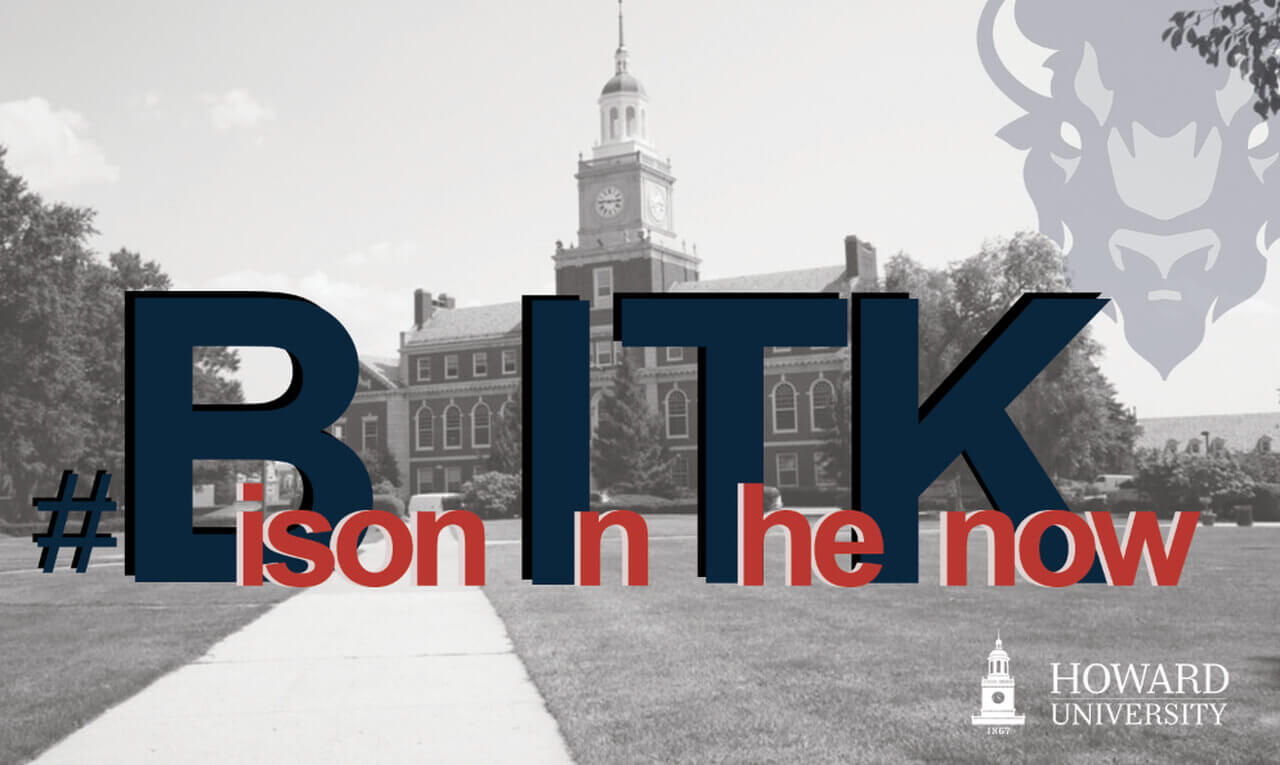
WASHINGTON – Director of Outreach within the Howard University Counseling Center Kelechi C. Fluitt, Ph.D., joins #BisonInTheKnow to share helpful tips on practicing self-care in the midst of a crisis or traumatic situation. With the nation and world reeling from the COVID-19 pandemic, and in commemoration of National Mental Health Awareness Month, Fluitt identifies the best practices for people to remain positive and productive while facing through unforeseen circumstances.
“I want to acknowledge that we are in the middle of a national pandemic; one that has changed our lives in unimaginable ways,” Fluitt says. “It has impacted the way in which we interact with one another and has pushed us into what may become our new normal.”
She says this shared experience, or collective trauma, is stressful and may introduce uncomfortable feelings like fear, anger, sadness and surprise. Those feelings, she says, are manifested in a variety of ways – some being more harmful than helpful. For example, Fluitt says people may notice a change in their eating or sleeping habits, difficulty with concentrating on tasks, and increased use of alcohol or drugs.
Defining and Managing Self-Care
Fluitt defines self-care is the practice of taking action to observe or improve one’s own health. She offers the following ways to incorporate self-care into your daily routines:
- Manage how you consume information by choosing reputable sources like the World Health Organization (WHO) and the Centers for Disease Control and Prevention (CDC)
- Remain active by exercising for at least 30-minutes each day
- Be intentional about sleeping in order to support your immune system
- Prioritize tasks to practice balance and prevent overload
- Stay connected with friends and family
- Avoid using maladaptive coping like drugs and alcohol
- Create a personal space for relaxation
Additionally, according to the National Alliance on Mental Illness, simple actions, like, getting dressed for the day, creating a schedule and documenting experiences, can make a substantial difference.
The 4-7-8 Calm Breathing Strategy
“It is also important to note that when we are stressed, whether emotionally or physically, or have some type of tension in our bodies, it can impact our breathing,” Fluitt explains. “I’d like to introduce you to the 4-7-8 calm breathing strategy.”
- Find a quiet place sit
- Take a few minutes to sit comfortably, in an upright position allowing your feet to firmly touch the ground
- Close your eyes
- Take a deep breath in, while counting to four
- Hold your breath for seven seconds
- Exhale slowly through your mouth while counting to eight
“You can repeat this cycle four times anytime you feel stressed,” she adds.
Fluitt closes the session by reminding students, faculty and staff that the University Counseling Service remains a trusted source for those in need of psychological services and crisis intervention. While Howard’s campus is currently closed due to the COVID-19 pandemic, the University Counseling Service continues to address individual cases remotely. For more information on the services provided, visit https://counselingservice.howard.edu.
#BisonInTheKnow is an online news and information campaign that offers useful tips and advice from Howard’s faculty experts about issues that are important to the Black community. Follow #BisonInTheKnow on Twitter, Facebook and Instagram for featured content. Like and share resources for the Bison community using the #BisonInTheKnow hashtag.
###
About Howard University
Founded in 1867, Howard University is a private, research university that is comprised of 13 schools and colleges. Students pursue studies in more than 120 areas leading to undergraduate, graduate and professional degrees. The University operates with a commitment to Excellence in Truth and Service and has produced one Schwarzman Scholar, three Marshall Scholars, four Rhodes Scholars, 11 Truman Scholars, 25 Pickering Fellows and more than 70 Fulbright Scholars. Howard also produces more on-campus African-American Ph.D. recipients than any other university in the United States. For more information on Howard University, visit www.howard.edu.
Media contact: Ramzey Smith, Office of University Communications, ramzey.smith@howard.edu




